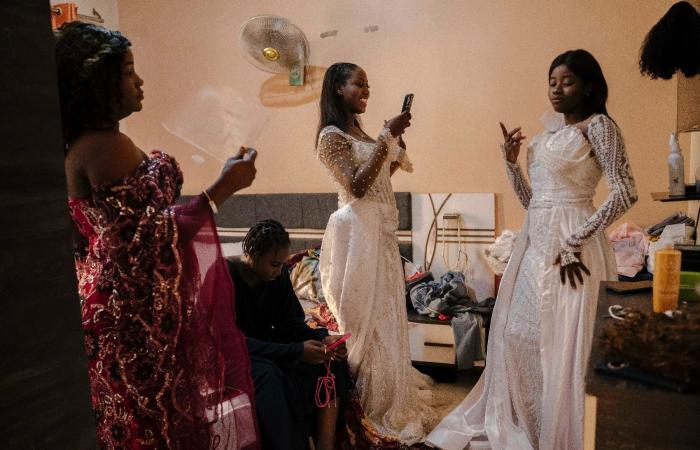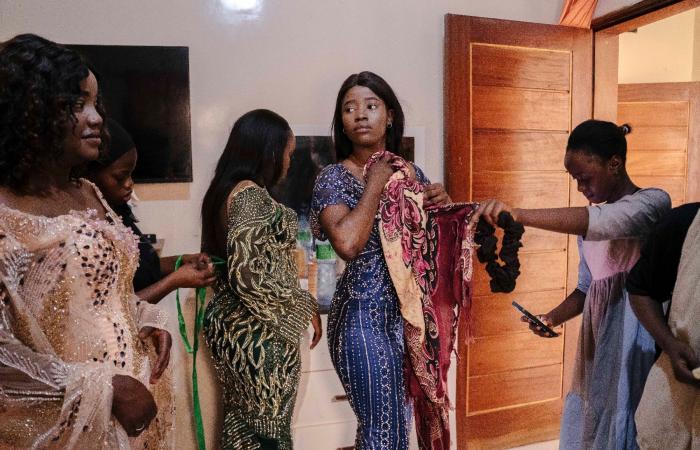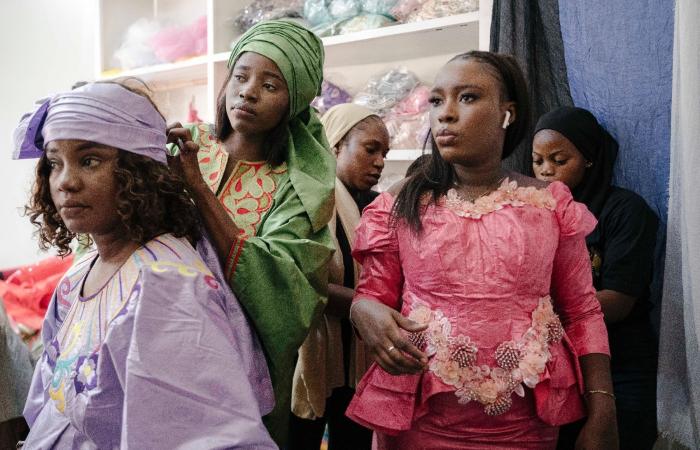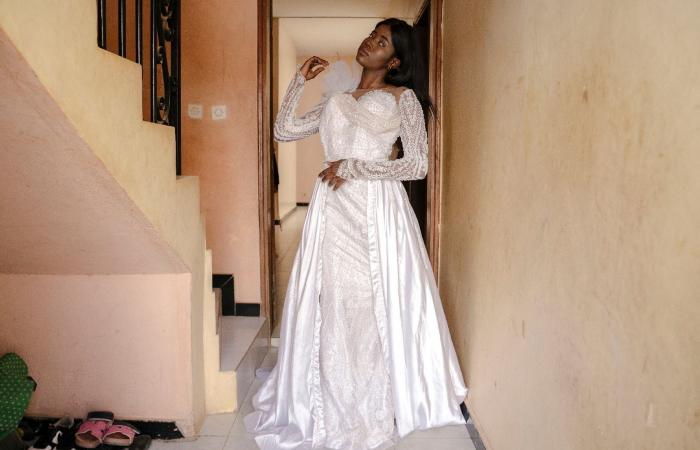Women in traditional dresses in front of a second-hand shop during a photo shoot in Rufisque, in the suburbs of Dakar, on June 6, 2024 in Senegal
AFP PHOTO / CARMEN ABD ALI
Barefoot, the young woman of 30 is active in a constant coming and going.
Between two orders, which come in over the phone, she prepares a photo shoot to promote her flagship products: second-hand boubous.
Along with the purchase of sheep, condiments or new shoes, the festive outfit is a must for Eid, called Tabaski in West Africa and celebrated on Monday for the greatest number in Senegal.
Women and men wear traditional dresses and tunics for the occasion made from luxury fabrics decorated with embroidery or pearls.
It is a significant expense that has become almost obligatory over time. Strong pressure on families and economies, even more so when times are tough.
Like the second-hand ready-to-wear trade in Western countries, the second-hand market for luxury boubous is experiencing growing success in Senegal.
When new, some models can cost up to 250,000 FCFA (381 euros), a small fortune when the median salary is 54,000 FCFA (82 euros) per month.
At Nabou, it is possible to find them for less than 90,000 FCFA (137 euros).
“People used to be ashamed to wear second-hand clothes for fear of being made fun of or denigrated. But more and more, many are becoming aware of their advantages,” she explains.
The young woman launched her online business in 2018 before opening her store in 2022. She has more than 80,000 subscribers on TikTok.
Abdou Fall, a father, decided this year to buy a second-hand tunic, an elegant three-piece brown boubou with beautiful embroidery around the neck. He acquired it for 60,000 FCFA (90 euros), instead of the 130,000 (196,000 euros) that it would have been worth new.
“It was not in my plans to buy a boubou for this year because I already had a lot to do with other expenses,” he confides. “But the price was so affordable that I said to myself that I’m not going to deprive myself of it.”
Most of the items belong to anonymous people who empty their wardrobe of outfits that have often only been used once.
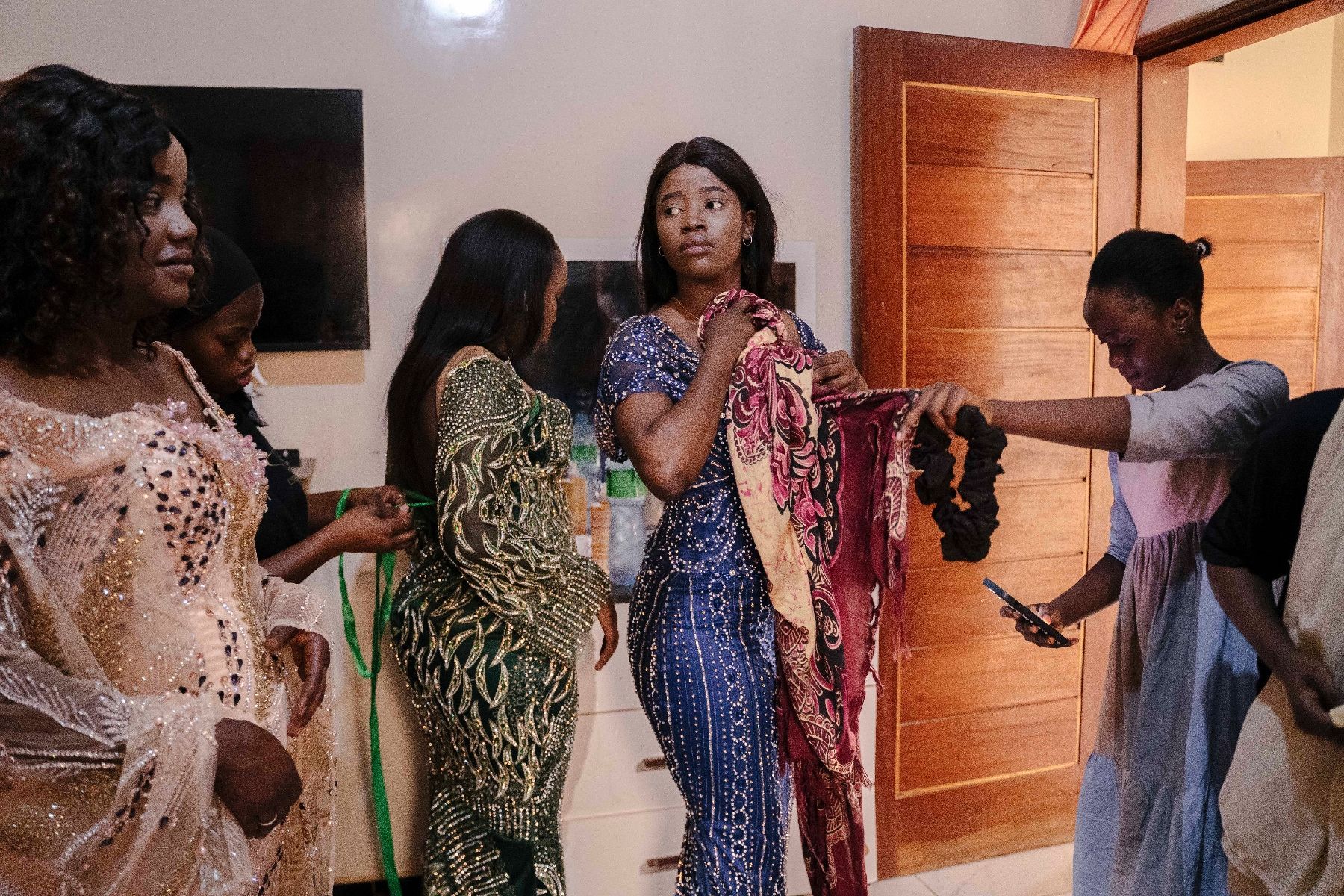
Wearing the same thing two years in a row is often frowned upon. Used boubous must absolutely look new.
“Who can tell that it’s not new? Nobody. With a little, you make yourself beautiful like everyone else and you can also resell it in your turn,” rejoices Matar Sarr, another customer.
Textiles are one of the most polluting industries in the world: only 13% of its materials are recycled in one way or another, according to a 2017 Ellen MacArthur Foundation report that is still a benchmark.

If some Senegalese criticize the waste of clothes during ceremonies, it is the financial argument that wins out for the majority.
Tabaski is not the only opportunity to treat yourself to more affordable luxury.
On the shelves, Khady Djiba is looking for a wedding dress for her little sister.

She examines the quality of the fabrics, runs her hand over the seams, lingers on the beading and ends up choosing a white model with a long train enhanced with sparkling pearls.
New, this dress would have cost her at least 150,000 CFA francs (228 euros), too expensive.
She bought it for 75,000 FCFA (114 euros). The dress has some defects, but the seller reassures: with a few alterations and dry cleaning, it will be as good as new.
“It’s a good deal. I’m very satisfied,” smiles Khady Djiba.

For one afternoon, Nabou’s boutique is transformed into a showroom where young women improvised models pose in front of the lenses. Makeup, bursts of laughter, winks… The photos and videos will feed social networks.
“You’ll see, customers will snap up the models once they’re posted on the networks,” says one of the models with a smile.


